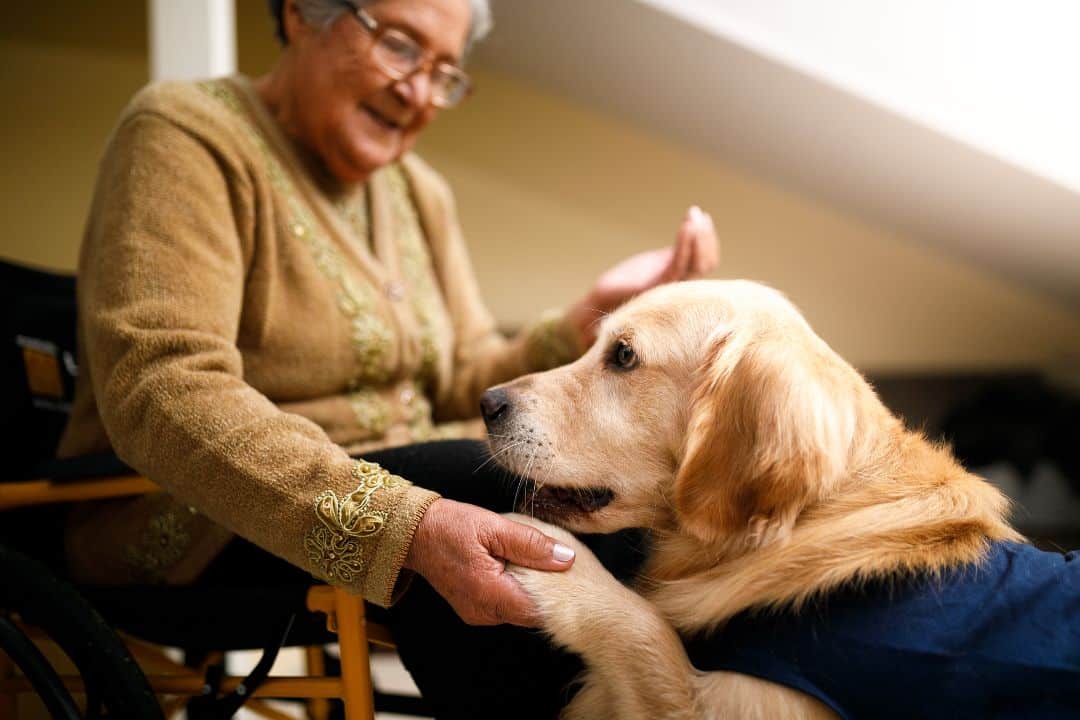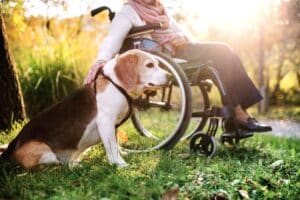
Best Practices for Senior Dog Care: Promoting Comfort and Well-being
What You Will Learn About Caring for Senior Dogs
- Understanding the specific needs of senior dogs, including physical, behavioral, and health changes.
- Creating a comfortable and safe living environment, adjusting their diet, providing exercise and mental stimulation, monitoring their health, and managing grooming and hygiene.
- Recognizing and addressing behavioral changes, ensuring their comfort and happiness, making necessary adjustments for special needs, creating a supportive atmosphere, and preparing for end-of-life care and decision-making.

Understanding the Needs of Senior Dogs
Importance of Senior Dog Care
Why is caring for senior dogs important? Recognizing and addressing the specific needs of senior dogs is crucial for promoting their well-being and happiness. Responsible pet owners must understand the evolving requirements of aging dogs.
Comprehensive Care for Senior Dogs
Caring for senior dogs involves a holistic approach that covers their physical, emotional, and mental health. It requires compassion and attentiveness to cater to their changing needs.
Senior Dog’s Unique Needs
Physical Changes and Challenges
Senior dogs experience reduced mobility, joint pain, and potential sensory impairments. Accommodating these changes is essential for their comfort and safety.
Behavioral and Cognitive Changes
Aging dogs may undergo cognitive changes, leading to disorientation or increased anxiety. Providing support and reassurance is vital for their well-being.

Common Health Issues
Arthritis, dental problems, and organ-related conditions are common in senior dogs. Prompt recognition and management are critical for maintaining their quality of life.

Creating a Comfortable Living Environment
Adapting the Home Environment
Modifying the home by adding ramps, anti-slip mats, and minimizing obstacles can enhance the safety and comfort of senior dogs.
Choosing Suitable Bedding
Selecting orthopedic beds or supportive bedding can alleviate joint pain and provide a cozy retreat for senior dogs to rest and relax.
Temperature Considerations
Maintaining a comfortable temperature in the home is crucial, especially during extreme weather, as senior dogs may be more sensitive to temperature variations.
| Consideration | Description |
|---|---|
| Regular Veterinary Check-ups | Essential for early detection and management of age-related health issues in senior dogs. |
Insider Tips:
Regular veterinary check-ups are essential for early detection and management of age-related health issues in senior dogs.

The Benefits of Tailoring Exercise Routines for Senior Dogs
As a responsible pet owner, I have experienced firsthand the positive impact of tailoring exercise routines for senior dogs. When my Labrador, Max, entered his golden years, I noticed that his energy levels and mobility were not the same as when he was younger. By adjusting his exercise routine to include shorter, more frequent walks and gentle swimming sessions, I saw a significant improvement in his overall well-being and joint flexibility. This tailored approach not only helped to maintain his physical health but also provided mental stimulation and a sense of routine for him.
The Impact on Physical Health
By customizing Max’s exercise routine, I observed reduced stiffness and improved mobility in his joints. The low-impact activities helped to manage his weight and prevent muscle atrophy, contributing to his overall comfort and quality of life.
The Role of Mental Stimulation
In addition to physical benefits, the tailored exercise routine provided mental stimulation for Max. Short, interactive play sessions and puzzle toys kept his mind engaged and helped prevent cognitive decline, promoting his overall happiness and well-being.
Finding the Right Balance
It was essential to strike a balance between rest and activity for Max. By observing his response to different activities and adjusting his routine accordingly, I was able to ensure that he remained active without overexerting himself.

Enhancing the Bond
Furthermore, the tailored exercise routine allowed for quality bonding time between Max and me. The focused attention during our activities strengthened our bond and provided him with the reassurance of my presence and support.
By sharing my experience with tailoring exercise routines for senior dogs, I hope to emphasize the importance of customizing physical activities to meet the specific needs of aging canine companions.
Personal Anecdotes and Stories
Sharing personal anecdotes and stories from pet owners who have successfully implemented these practices can provide valuable first-hand experiences for readers. These real-life examples can offer practical insights and inspiration for caring for senior dogs.
Author’s Credentials
As a professional with extensive experience in veterinary care and animal behavior, the author brings a wealth of expertise to the topic of senior dog care. With a background in understanding the needs of aging dogs, the author is dedicated to promoting the well-being and comfort of senior canine companions.
Conclusion
Understanding the specific needs of senior dogs and providing a comfortable living environment is essential for promoting their well-being and ensuring they enjoy their golden years to the fullest. By being attentive and compassionate, pet owners can make a significant difference in the lives of their aging canine companions.
Questions & Answers
Who should consider caring for senior dogs?
Anyone who wants to provide loving care for older canine companions.
What are the best practices for senior dog care?
Regular vet check-ups, a balanced diet, gentle exercise, and a comfortable living environment.
How can I make my home senior dog-friendly?
Use non-slip rugs, provide easy access to water and food, and create a cozy, quiet space.
What if I can’t afford senior dog healthcare?
Look into financial assistance programs or discuss payment options with your vet.
How can I keep my senior dog active and engaged?
Engage in low-impact activities like short walks, gentle play, and mental stimulation games.
What if my senior dog becomes incontinent?
Use dog diapers and consult your vet for guidance on managing incontinence issues.
The author of this article, William Roberts, is a licensed veterinarian with over 10 years of experience specializing in senior dog care. They obtained their Doctor of Veterinary Medicine (DVM) from the University of Pennsylvania School of Veterinary Medicine and completed a residency in geriatric animal care at the renowned Animal Medical Center in New York City.
William Roberts has also contributed to several publications on senior dog health and wellness, including a study published in the Journal of Veterinary Internal Medicine on the impact of tailored exercise routines on the physical health of senior dogs. Their expertise in senior dog care is further demonstrated through their work as a consultant for senior dog care facilities and their role as a board member of the National Association for Senior Dog Care Professionals.
With a passion for enhancing the lives of senior dogs, William Roberts is dedicated to sharing their knowledge and expertise to help senior dog owners provide the best possible care for their beloved companions.

